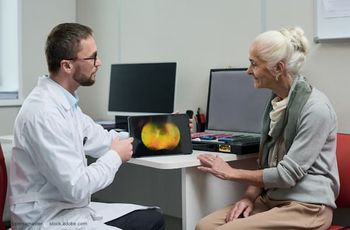
Q&A: Jay Chhablani, MD, on the phase 1/2 data for OCU410 from ASRS 2025
At the 2025 annual scientific meeting of the American Society of Retina Specialists (ASRS), Jay Chhablani, MD, Vice Chair at University of Pittsburgh Medical Center gave a presentation titled, "Safety and efficacy of OCU410, a novel modifier gene therapy, for treatment of geographic atrophy: Phase 1/2 study update."
This meeting took place in Long Beach, California, from July 30 through August 2, 2025 and brought together leaders in the retina community to highlight the advancements, research, and trends in the space. Modern Retina was on site at this event and had the opportunity to speak with Chhablani about his presentation.
Note: The following conversation has been lightly edited for clarity.
Modern Retina: You are presenting research here at ASRS 2025 on the clinical trial for OCU410. What do the results from this trial show?
Jay Chhablani, MD: I am presenting the phase 1/2 data from Ocugen, that is their molecule, OCU410, for dry macular degeneration. The results are very promising. We are primarily focusing on the safety data, which showed no serious adverse events during the 12 months follow up. So, in addition to no adverse events during 12 months follow up, we also noticed more than 40% decrease in the lesion size, as well as 4 line improvement in the visual function in terms of low luminance visual acuity.
MR: What do the next steps for this research look like?
Chhablani: So, we are really excited about about this data, and we will be able to share phase 2 data very soon as the phase 2 enrollment has already completed, and Ocugen is looking forward to start their phase 3 trial next year, in 2026, first quarter.
MR: This pharmaceutical candidate is a gene therapy. Can you speak to how that may benefit patients in the future?
Chhablani: Considering that this is a gene therapy, which is delivered subretinally, though it requires a surgical intervention, but we can easily convince our patients, because this is almost like one-and-done therapy. So, you don't have to go through monthly injections. Instead, you just under go 1 surgery, and that will help to slow down the progression of the disease. The drug, which is being delivered subretinally, it is a gene therapy drug, which usually absorbed in the first few days, and you may see some pigmentary changes later during the follow-up. But because this therapy is being delivered far in the periphery, so it does not influence patients vision because of the pigmentation.
Newsletter
Keep your retina practice on the forefront—subscribe for expert analysis and emerging trends in retinal disease management.

































